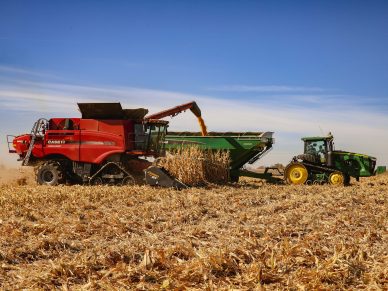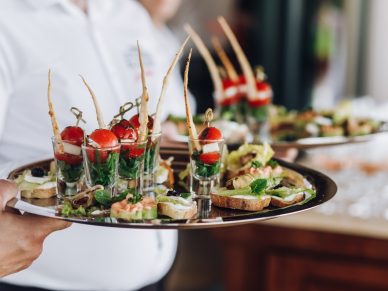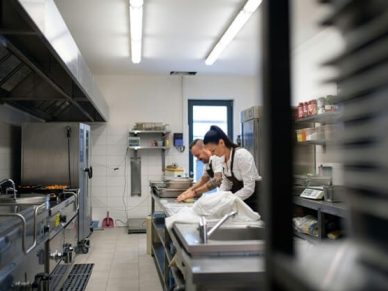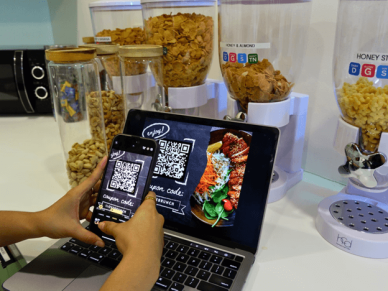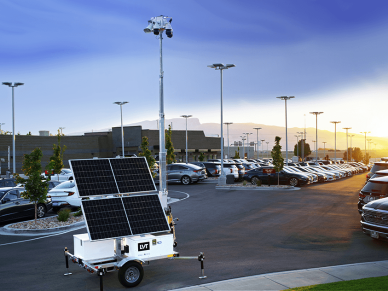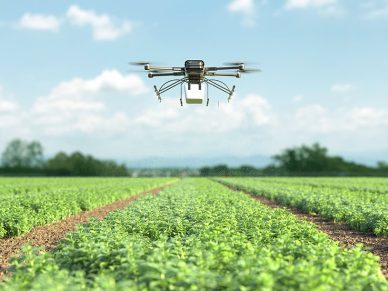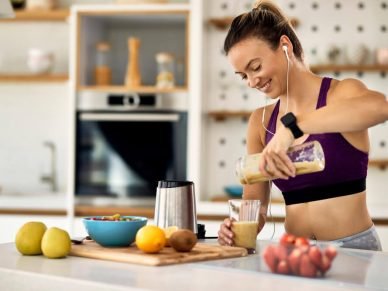The sustainability goals for these twelve brands showcase how much impact the food and beverage industry has on the environment.
 Food shopping can be overwhelming enough on its own, but trying to consider the environment and sustainability aspects of those foods can add extra stress.
Food shopping can be overwhelming enough on its own, but trying to consider the environment and sustainability aspects of those foods can add extra stress.
Never fear. There are several brands and parent companies that have made impressive strides in sustainability. If you’re wondering what companies should get your grocery bucks, check out this list.
Lipton
Tea is a wonderful thing. It’s both relaxing and caffeinating, which is an amazing feat. Even better, Lipton is committed to sourcing 100-percent sustainable tea by 2020.
Since tea is the second-most popular beverage on the planet after water, this could have a big impact. The company is working to make all of its tea Rainforest Alliance Certified, which helps protect the land, water, and people in tea-growing areas.
Celestial Seasonings
If you like herbal tea, you’re probably familiar with Celestial Seasonings. The company has a wide selection of herbal, caffeine-free teas that are available in most grocery stores.
It also focuses on sustainability by buying directly from farmers, supporting rainforest protections, using 100-percent recycled paperboard for packaging, and reducing its environmental impact and carbon footprint from shipping.
Cargill
The name of this company might not seem familiar, but it truly is everywhere. If you’ve ever heard of Purina, you’ve heard of Cargill.
Although it only sells under a few brands, Cargill is a big provider of ingredients for a lot of foodstuffs. The company publicly backed the Paris Agreement after Trump’s decision to exit, and is working toward sustainability goals regarding how it sources products including palm oil, cocoa, soy, and many others.
New Belgium
If beer is something you enjoy, then you might be happy to learn that a number of beer brands are also working toward significant sustainability goals.
New Belgium is especially progressive in this regard. The company has been cutting down its carbon footprint since 2006, diverting almost all of their waste products and promoting clean water.
Carlsberg

Carlsberg Beer has some ambitious sustainability goals. The company is aiming for a zero-carbon footprint by 2030, and intends to move its brewing over to using all renewable energy. The company also wants to cut all water waste, which is a big deal considering how much water a brewing company uses.
Reducing water waste is crucial to making strides with climate change.
MillerCoors
Since this is the third beer company to make our list, you might have noticed sustainability is a major trend in the beer industry.
MillerCoors, whose beer brands you might be able to guess, is chiefly concerned with water use. Since beer and all other beverage companies depend so heavily on a constant supply of fresh water, it’s one of their main environmental concerns.
The company is working to reduce water waste and get clean drinking water to people all over the world. Most beer brands, including MillerCoors, are also invested in promoting safe drinking behaviors, which further extends the company’s social responsibility platform.
Ben and Jerry’s
It’s great to know that something you love is also doing something good. The company’s unusual, delicious flavors with names like Cherry Garcia set them apart, but so does its commitment to the planet. Ben and Jerry’s website not only seeks to educate visitors on climate change, but also lays out the company’s goals. They’ve been running climate change advocacy projects since 2007.
One Degree Foods
Each ingredient this brand uses can be traced all the way back to the farm it came from, making One Degree Foods one of the most transparent food organizations on the planet. The company also tries to minimize processing food, saving on production and water use.
Mars
Mars Bars might be a favorite treat of yours, so what could make it better? In this case, knowing that buying them is also supporting better agricultural practices.
Mars is working toward sustainable cocoa and is starting with the farmers. In some areas, the company has been able to help farmers triple their yields in the past five years without doing damage to the land.
General Mills
In 2016, General Mills was able to use 100-percent sustainably sourced palm oil. This is a huge deal because palm oil production is devastating to the environment due to its use in everything from soap and makeup to cookies and noodles.
The harvesting of palm oil, and the slash-and-burn techniques used to clear ground, played a big role in the Indonesian wildfires of 2015 that ravaged huge areas of rainforest.
PepsiCo
PepsiCo is a well-known company with many brands under its umbrella. The organization as a whole is working to make clean water available to people everywhere, and the company’s farmers in the UK have successfully reduced their water use by 50 percent.
The research and development team at PepsiCo has also developed a cold box, designed to reduce food waste by keeping foods at their proper temperatures.
Whole Foods
 It’s virtually impossible to compile a list like this without mentioning Whole Foods. This brand is known for two things: sustainability and prices. Luckily, its prices have been falling as the wholesale prices of organic and sustainable foods has also fallen.
It’s virtually impossible to compile a list like this without mentioning Whole Foods. This brand is known for two things: sustainability and prices. Luckily, its prices have been falling as the wholesale prices of organic and sustainable foods has also fallen.
Part of the company’s goal is to only sell sustainably caught fish, which is a big factor. Some places have less-than-desirable conditions for fishermen, like the slave boats of Thailand.
Sustainability encompasses human working conditions as well, so Whole Foods takes care to avoid supporting illegal fishing activities.
Dedication
Not all food and beverage companies are entirely dedicated to reducing their environmental impact on the planet. Some have yet to make sustainability a priority, but it’s unlikely that many will abandon it. Food and beverages, more than most products, depend on the planet, and rely on a predictable climate to maintain their supply chains.
Although these companies’ dedication to robust sustainability goals may stem from self-preservation, the dedication is all that truly matters. If you buy from these brands, you can do so guilt-free.
Kayla Matthews writes about the future of work and connected technologies for publications like The Week, MakeUseOf, and VentureBeat. Check out her tech blog to read more posts from Kayla.
